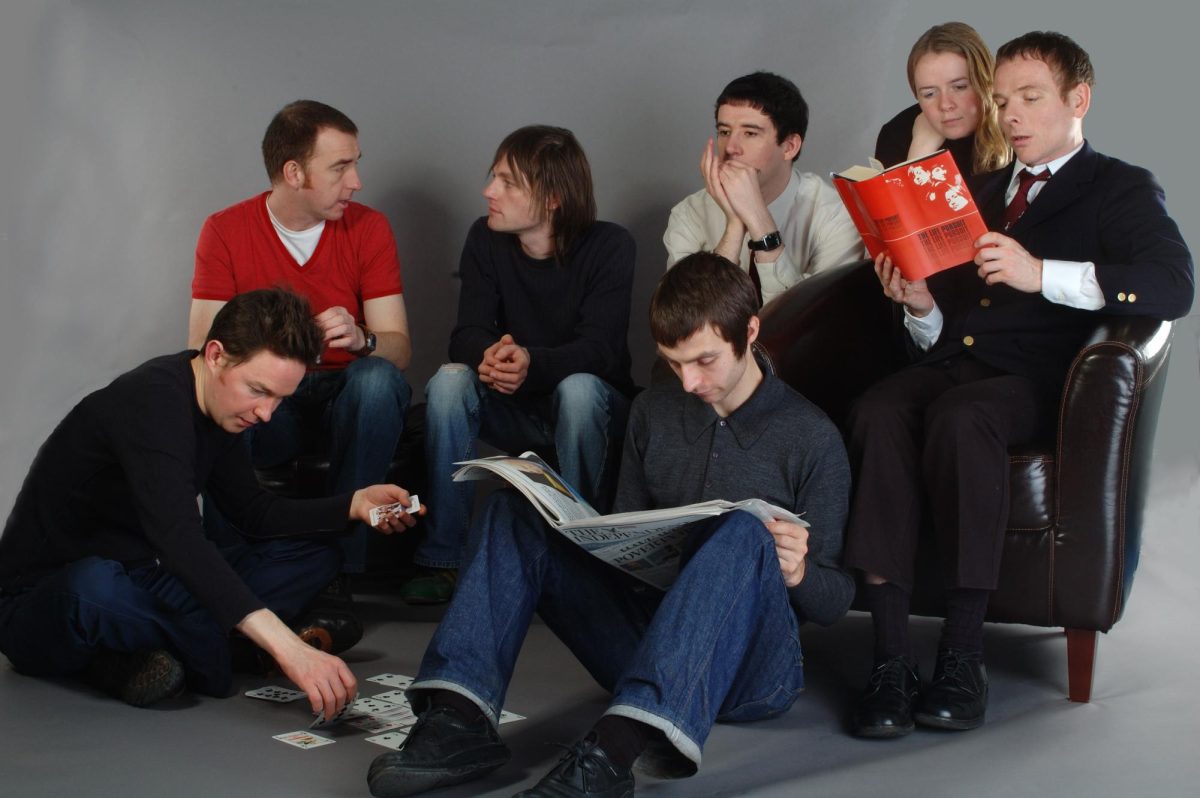Ten days ago, Glasgow indie outfit Belle and Sebastian wrapped up their latest North American tour in support of their latest LP, Late Developers. The album is the band’s 12th studio album since their conception as part of a government-funded music course designed as a “Training for Work ” program for individuals on income support. Since then, the band has become a prolific titan of the indie music scene, releasing one acclaimed album after another. As its most recent American tour comes to a close, here’s a look back at one of the band’s seminal albums.
When I first encountered Belle and Sebastian’s music, sitting in a rainy classroom depopulated by the COVID-19 pandemic, the first thing that struck me was lead singer Stuart Murdoch’s voice. Like everything in the band’s oeuvre, it has that particular quality of literary unreality, as if he was speaking to you straight out of the pages of a book or a childhood memory. Sonically, the music draws on the softer side of the pop and rock sounds of the sixties and seventies, including acoustic guitars and lush orchestral arrangements. he storytelling traditions of artists like Bob Dylan and Ray Davies are evident, as the music evokes a romantic, picaresque world where the only virtues are cleverness and beauty, and the greatest threat of all is not boredom, but rather, to be boring.
If You’re Feeling Sinister, the band’s third album, released in 1998, is a staple of what has become known as “twee,” a genre of music, fashion, and film that winkingly celebrates the hopelessly romantic, the insufferably precocious, and the pathologically beautiful. Throughout the album, lead singer Stuart Murdoch creates clever, tender pictures of a very specific kind of character at a specific juncture in their life–demure, repressed, hyper-romantic, often sexually deviant, and emotionally desperate. These– characters are either torturously unable to reconcile their idealistic impulses to a stultifying world or are making a futile attempt to suppress those impulses.
The eponymous title track, for example, is a wickedly clever anthem for the hopeless romantic. Murdoch follows a wistful, pastoral plod of organs and acoustic guitars as he details the desperate attempts of two precocious characters to escape the existential clutches of boredom: “Anthony walked to his death because he couldn’t think of anything to say.” Murdoch follows along like a witty fairy godmother as his characters turn to methods as varied as the Catholic Church to kinky sex, providing impish puns, “The vicar or whatever took her to inside and gave her confirmation,” alongside genuine, albeit tongue-in-cheek, empathy for his characters as they wrestle with the “pain of being a hopeless unbeliever.” This phrase is immediately followed with a sugary sweet refrain of la la la’s, showing the listener that Murdoch is not entirely serious in his penitence.
Belle and Sebastian’s music is great because it is hilarious, endlessly quotable, but most of all, because it is beautiful, and unabashedly so. In a world where “main character syndrome”–a romantic, overserious view of oneself–is derided, and self-absorption is considered the cardinal sin of pop music, If You’re Feeling Sinister is an album that revels in its own idealized sense of romance and proudly proclaims its own sensitivity. The band isn’t concerned about coming off as obnoxiously bookish; in fact, it cultivates that image, celebrates its precocity, and makes no effort to censor or temper its own romantic instincts. Belle and Sebastian are fantastic because they make it okay to be beautiful, okay to be fragile, and ultimately, although they would most likely deny it, okay to be a hopeless believer.














































































































































